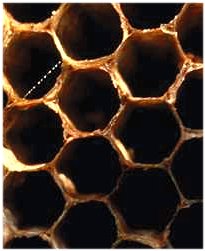
A group of pathogens including a fungus and family of viruses may be working together to cause the decline in honeybees known as colony collapse disorder, say researchers from the United States Department of Agriculture (USDA). “There might be a synergism between two very different pathogens,” explained USDA’s Jay Evans. “When they show up together there is a significant correlation with colony decline.” The findings were presented yesterday at the 110th General Meeting of the American Society for Microbiology in San Diego.
Colony collapse disorder was first identified in October 2006, when some beekeepers began reporting losses of 30-90 percent of their hives. Although colony losses are not unexpected during winter weather, the magnitude of loss suffered by some beekeepers was highly unusual.
To better understand the cause of these collapses, in early 2007 Evans and his colleagues collected bees from both healthy and declining colonies across the country but primarily from California and Florida where most of the commercial pollination activity takes place. They have screened these samples and similar samples from each year since then for both known and new pathogens.
Nosema are transferred between bees via the fecal-oral route. When a bee initially ingests the microbes and they get to the mid-gut, they attach themselves onto the gut wall and live inside the epithelial cells there. Evans believes that the slightly higher numbers of the fungus somehow compromise the gut wall and allow the viruses to overwhelm the bees. In colonies with higher Nosema numbers they found virus levels to be 2-3 times greater than healthy colonies.
While this is a working theory and they are still in the discovery phase looking for new pathogens, Evans and his colleagues are also actively looking for a way to boost bee defenses against Nosema. “A way to protect against Nosema might be the key for now,” says Evans.
Related:
Potent pathogen cocktail found in deserted hives
Bee Boffins Abuzz With Theories About Honeybee Decline
Honeybees Hit The Road
Crisis In Bee Population Threatens US Crops
Cell phones to blame for deserted bee colonies?

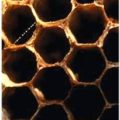
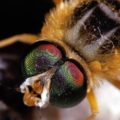
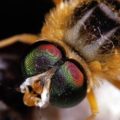

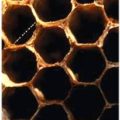


Comments are closed.